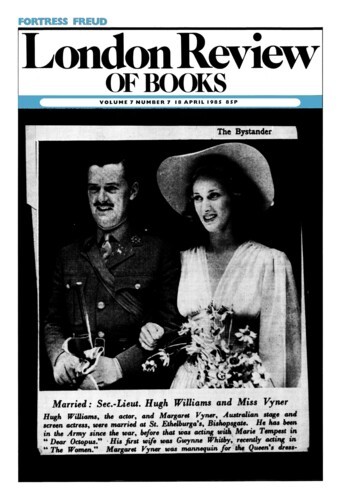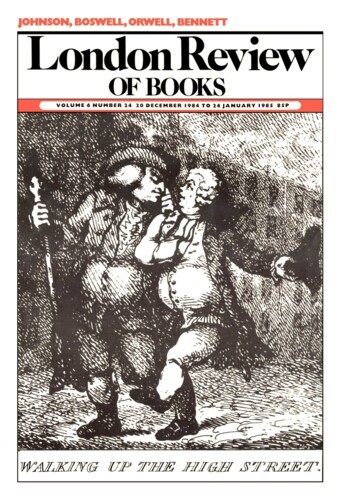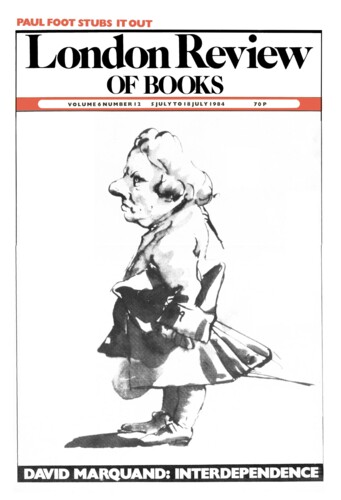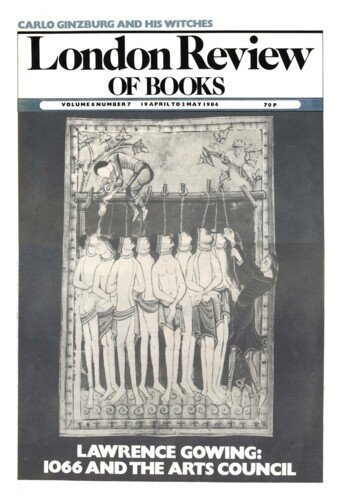Tethering the broomstick
Jose Harris, 18 April 1985
‘Who shall paint the chameleon, who can tether a broomstick?’ wrote J.M. Keynes of David Lloyd George in 1919. ‘How can I convey to the reader … any just impression of this extraordinary figure of our time, this syren, this goat-footed bard, this half-human visitor to our age from the hag-ridden magic and enchanted woods of Celtic antiquity?’ This passage was left out of the original text of The Economic Consequences of the Peace, because Keynes felt that he had tried and failed to do justice to the British prime minister’s baffling complexity of character. Lloyd George has continued to dazzle and elude his numerous biographers ever since. Few statesmen have had their public and private lives so frankly exposed and picked over by friend and foe alike: yet few have so tantalisingly evaded the grasp of the historian. Was Lloyd George, as Keynes suggested, a chimera from the Celtic twilight: or was he on the contrary a pioneer of modernity, managerialism and administrative rationalisation? Was he a ruthless practitioner of power politics or a diplomatic femme fatale – endowed with an almost feminine lubricity and guile? Was he an adherent of high principle, or merely a virtuoso of grand rhetoric? Was he a genuine democrat and parliamentarian, or was he mainly concerned with concentrating the power and streamlining the efficiency of the modern centralised state?’





